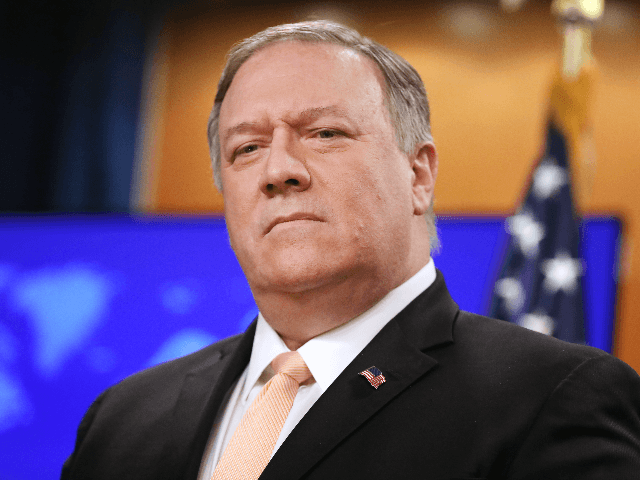U.S. Secretary of State Mike Pompeo on Tuesday announced visa restrictions for Chinese Communist Party (CCP) officials in response to the CCP’s obstruction of U.S. diplomats and others traveling to Chinese-occupied Tibet, the Press Trust of India reported Wednesday.
In a press statement, Secretary of State Pompeo explained that the U.S. State Department would deny CCP officials entry to the U.S. in line with the Reciprocal Access to Tibet Act of 2018:
Beijing has continued systematically to obstruct travel to the Tibetan Autonomous Region (TAR) and other Tibetan areas by U.S. diplomats and other officials, journalists, and tourists, while PRC [People’s Republic of China] officials and other citizens enjoy far greater access to the United States.
Therefore, today I am announcing visa restrictions on PRC government and Chinese Communist Party officials determined to be “substantially involved in the formulation or execution of policies related to access for foreigners to Tibetan areas,” pursuant to the Reciprocal Access to Tibet Act of 2018.
Pompeo added that the CCP’s travel restrictions jeopardized crucial human rights monitoring in the Chinese-occupied territory.
“Access to Tibetan areas is increasingly vital to regional stability, given the PRC’s human rights abuses there,” he said.
The announcement comes as diplomatic relations between the U.S. and China continue to deteriorate over what many perceive as the CCP’s culpability for the Chinese coronavirus pandemic, trade relations, and China’s encroachment in Hong Kong. China has been engaged in its own Himalayan border dispute with India in recent weeks as well, causing the Chinese army to build up its forces in nearby Tibet.
China responded to the visa restrictions on Wednesday, saying it will impose its own visa restrictions on U.S. citizens “who have engaged in what it called ‘egregious’ behavior over Tibet,” Reuters reported.
The U.S. “should stop going further down the wrong path to avoid further harming China-U.S. relations and communication and cooperation between the two countries,” Chinese Foreign Ministry spokesman Zhao Lijian said at a press conference in Beijing.

COMMENTS
Please let us know if you're having issues with commenting.